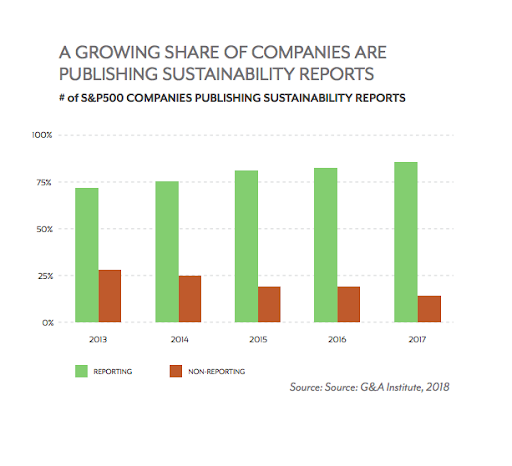More businesses need to report their climate impact, here’s why

Growing awareness of the effects of climate change is prompting a demand for action from both the public and private sectors. While many governments recognize the need to measure climate impact, small and medium-sized enterprises have not had the same tools available to them. Until now, that is.
Governments around the world have begun to step up to the challenge of global warming and other long-term environmental concerns. Many (with some notable exceptions) pledged adherence to a set of rules established at COP24, the 2018 UN Climate Change Conference. The rules will define how to measure and report on climate impact and initiatives to reduce emissions and other potentially harmful practices. Now it’s time for the private sector to do the same. Business of all shapes and sizes need to be prepared to analyze the impact of their sustainability initiatives on their operations, supply chains and products.
Meeting the SDGs depends on public and private participation
The private sector has a vital role to play in advancing the global development agenda. The Organization for Economic Cooperation and Development (OECD), states that emerging economies, private sector operations constitute an average of 60 percent of GDP, while generating 90 percent of jobs and 80 percent of capital inflows. The private sector further contributes to development by providing goods and services, financing social and economic investments through taxes, and creating innovative solutions to help tackle development challenges. Innovation in the private sector across the world is a prerequisite for achieving the 169 ambitious targets, which collectively make up the 17 SDGs.
“Private business activity, investment, and innovation are major drivers of productivity, inclusive economic growth, and job creation. A thriving private sector is critical for domestic resource mobilization, principally via taxation...They must internalize any negative externalities associated with their actions – the polluter pays principle. Only in this way can we tackle the pervasive poverty and deprivation, while conserving the environment for future generations.” – UNDP Resident Representative Edward Kallon spoke at the International Sustainability Conference 2017 in Lagos.
Promising signs of increased reporting
Media and research company GreenBiz Group came out with the 2019 State of Green Business (SOGB) report recently to share the results their assessments of what progress, if any, is being made by publicly traded companies in improving their environmental sustainability:
“Companies use natural resources and generate pollution as a result of their business activities. Direct, verified disclosure of impacts by companies is the primary means of measuring these costs, and the trend here is strongly towards greater disclosure of impacts, with 85 percent of the S&P 500 publishing dedicated sustainability reports in 2017.”
The S&P 500 is an American stock market index based on the market capitalizations of 500 large companies having common stock listed on the NYSE, NASDAQ, or the Cboe BZX Exchange. The SOGB puts forward the suggestion that some 85% of S&P 500 companies published a sustainability report in 2017, an increase of nearly 20% from 2013. 28% more companies set carbon and water targets over the past five years, and 1,200 global companies are set to align with the Paris Agreement 2 degrees Celsius goal.
It doesn’t end there. Some 28 more stock exchanges than in 2017 set environmental listing requirements and 58 total stock exchanges that have environmental listing requirements (all in all, some 52,000 companies are listed in these stock exchanges).
Even though SMEs can't approach the goals in the same way as national governments or S&P 500 companies, we mustn’t underestimate their potential contribution in the progression toward the sustainable development goals. The policy applied by the company in the issues, including the control procedures have been implemented.
Reporting for small and medium-sized enterprises
It’s not just publicly traded companies that can contribute to more sustainably friendly business operations. SMEs can follow suit and report sustainability and compliance information using online tools. By proactively making information available using the Global Reporting Initiative (GRI) sustainability reporting framework and other international frameworks, SMEs can not only share their data but also use it to compare and contrast it with regulations set out by national and regional authorities.
A comprehensive free-to-download guide is available from the GRI that aims to boost and improve businesses’ reporting on the Global Goals and their efforts to achieve the 2030 Agenda. Business Reporting on SDGs: Analysis of Goals and Targets (pdf) does not create a new reporting framework, but rather builds upon the Ten Principles of the UN Global Compact, the UN Guiding Principles on Business and Human Rights, and the GRI Sustainability Reporting Standards. “Effective corporate reporting is key to building trust and aligning investment through transparency and accountability,” says Tim Mohin, Chief Executive at GRI. “This guide helps businesses move beyond the current trend of simply mapping activities and programs against the SDGs to driving change.”
Related blog posts you might like:






%20as%20the%20deadline%20approaches.%20Learn%20about%20compliance%20requirements%2c%20potential%20delays%2c%20and%20key%20updates..png)

